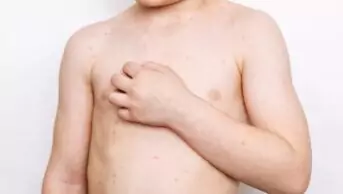Open access article
The Royal Pharmaceutical Society has made this article free to access in order to help healthcare professionals stay informed about an issue of national importance.
To learn more about coronavirus, please visit: https://www.rpharms.com/resources/pharmacy-guides/wuhan-novel-coronavirus
Coronaviruses (CVs) can cause disease in many mammals. Despite the previous SARS and MERS outbreaks (from 2002, and 2012, respectively), there are scant data to inform us about active treatments for CV spread or pathology.
Chloroquine (CQ) and hydroxychloroquine (HCQ) are well-known antimalarials, and are also used as anti-inflammatory agents. They have activity against some viral infections, including Ebola and dengue virus, and may be effective in a common and often fatal CV disease known as feline infectious peritonitis[1]
.
In vitro, they inhibit early CV invasion of animal cells[2]
. In Chinese patients with COVID-19 pneumonia, they have reportedly proven beneficial; HCQ was shown to reduce viral loads in patients with COVID-19 in a French trial, although the study had flaws[3],[4]
. A South Korean clinical task force, along with Italian and Chinese researchers, has suggested off-label treatment with CQ or HCQ for COVID-19-positive patients[5]
,[6]
,[7]
. The US Food and Drug Administration has also issued an emergency use authorisation to prescribe the drugs
[8]
.
The broad-spectrum activity of these drugs derives from their capacity to increase the pH in lysosomes. This causes decreased phagolysosomal function with related anti-inflammatory and immunomodulatory effects; these include decreased antigen presentation and influence on innate immune system signaling pathways, through toll-like receptors and the cell signaling protein TNF-a.
However, chloroquines have many well-established side effects. They have long half-lives and a wide range of toxic and lethal concentrations, such that prescriptions are traditionally planned and monitored by clinical teams. Chronic use of HCQ requires monitoring for ocular toxicity, for instance. Overdosing can be fatal. Furthermore, CQ may exacerbate and prolong viral disease, as in the mosquito-borne chikungunya virus[9]
.
Without proven treatments for CV, the availability of these inexpensive drugs in many parts of the world has already driven panic purchases and inappropriate self-medication. Over 20 people in Nigeria have been hospitalised owing to self-administration of over-the-counter chloroquine in response to the pandemic and a man in Arizona has died after ingesting a form of chloroquine used to treat aquariums[10],[11]
. These dangers must be publicised; pharmacists are well-versed in managing such issues.
No definitive results relate the effects of CQ and HCQ on community susceptibility to COVID-19. Approaches, such as using small-molecule antiviral therapies, or antibody-based treatments, need testing, and synergistic strategies, such as HCQ with azithromycin, require examination.
Colin Michie, consultant paediatrician, Wexham Park Hospital, London
Pat Kelly, veterinarian and professor of small animal medicine, Ross University School of Veterinary Medicine, St Kitts, Lesser Antilles
References
[1] Takano T, Katoh Y, Doki T et al. Antiviral Res 2013;99(2):100–107. doi: 10.1016/j.antiviral.2013.04.016
[2] Liu J, Cao R, Xu M et al. Cell Discov 2020;6:16. doi: 10.1038/s41421-020-0156-0
[3] Gautret P, Lagier JC, Philippe P et al. Int J Antimicrob Agents 2020; In press. doi: 10.1016/j.ijantimicag.2020.105949
[4] Yazdany J, Kim AHJ. Ann Intern Med 2020. doi: 10.7326/M20-1334
[5] Sung-sun K. 2020. Available at: http://www.koreabiomed.com/news/articleView.html?idxno=7428 (accessed April 2020)
[6] Cortegiani A, Ingoglia G, Ippolito M et al. J Critical Care 2020; In press. doi: 10.1016/j.jcrc.2020.03.005
[7] Multicenter Collaboration Group of Department of Science and Technology of Guangdong Province and Health Commission of Guangdong Province for chloroquine in the treatment of novel coronavirus pneumonia. Zhonghua Jie He He Hu Xi Za Zhi 2020;43(3):185–188. doi: 10.3760/cma.j.issn.1001-0939.2020.03.009
[8] Lenzer J. BMJ 2020:369:m1335. doi: 10.1136/bmj.m1335
[9] Roques P, Thiberville SD, Dupuis-Maguiraga L et al. Viruses 2018;10(5):268. doi: 10.3390/v10050268
[10] Leadership Nigeria. 2020. Available at: https://leadership.ng/2020/03/21/lagos-hospitals-flooded-with-chloroquine-overdose-patients/ (accessed April 2020)
[11] McLaughlin EC. 2020. Available at: https://edition.cnn.com/2020/03/23/health/arizona-coronavirus-chloroquine-death/index.html (accessed April 2020)


